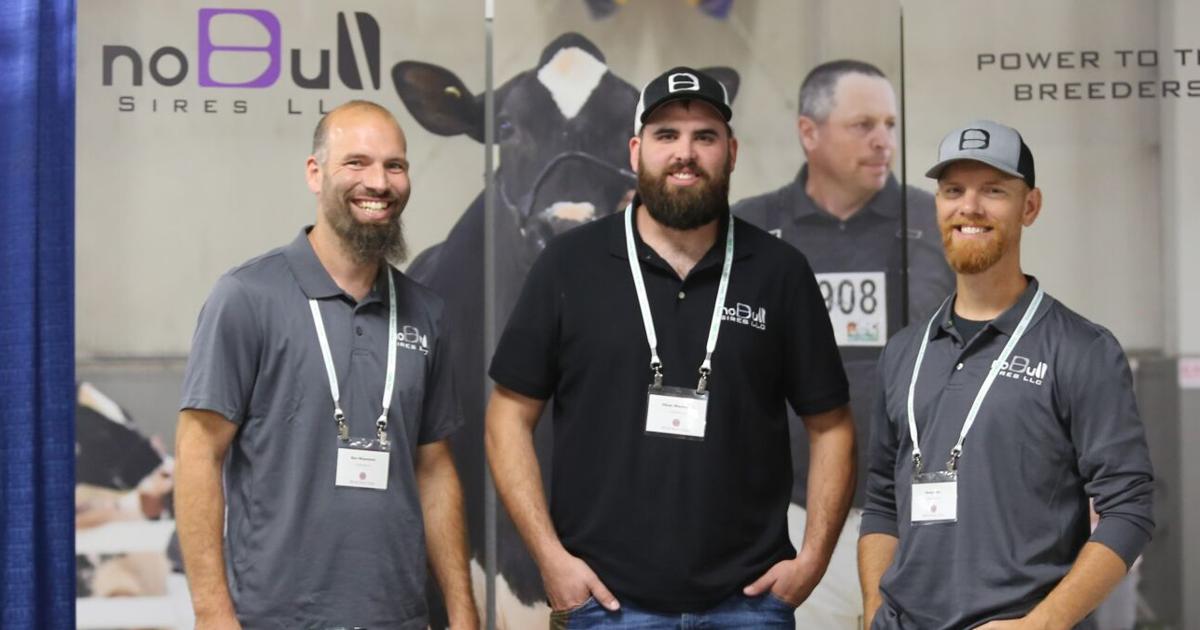 Dive into the intricacies of the NoBull Ultrasound Case, potentially heading to the State Supreme Court. Will justice prevail? Find out more.
Dive into the intricacies of the NoBull Ultrasound Case, potentially heading to the State Supreme Court. Will justice prevail? Find out more.
All eyes are sharply focused on an unfolding legal drama that could escalate to the Pennsylvania State Supreme Court. At the center are two Pennsylvania men, Rusty Herr, 43, and Ethan Wentworth, 33. They stand accused of practicing veterinary medicine without a license. Herr was taken into custody at the Lancaster County Prison on April 11, with Wentworth experiencing a similar fate a day earlier at the York County Prison.
These two individuals are famous within the local dairy farming community as the operational partners of Airville-based NoBull Solutions LLC. Lately, the company has been squarely in the firing line with numerous complaints filed against them by the Pennsylvania Veterinary Medicine Association. At the very heart of the outrage lies the presumption of unlawful use of ultrasound equipment by NoBull employees, supposedly used to conduct pregnancy checks on livestock, including dairy cattle.
The allies of Herr and Wentworth are fiercely adamant in their defense, insisting that the use of ultrasound devices for conducting pregnancy checks certainly does not fall within the jurisdiction of practicing medicine.
“The Commonwealth Court failed to correct their error, so we are taking the case directly to the Pennsylvania Supreme Court,” Robert Barnes, the attorney representing both Herr and Wentworth, announced in a statement issued on May 1. This announcement came hot on the heels of a hearing in the Commonwealth Court. This hearding ended with Judge Michael Wojcik’s decision to deny their immediate release from prison.
The drama continues to unfold as the families of the two detained men plead for their release, insisting that both men were wrongfully imprisoned:
“We ask the state to do the right thing and release them immediately so they can come home to their children.”
In the state of Pennsylvania, the concept of veterinary practice is broad in scope under current laws. It includes any method or technique used for diagnosis, and even though ultrasounds are not explicitly mentioned, veterinary groups argue that they naturally fall under this umbrella regulation. Dr. William Croushore, a representative from the state veterinary medical association, posits that conducting ultrasounds for identifying pregnancy and reproductive issues in cattle is decidedly part of veterinary medicine.
Brought to the limelight by the recent arrest of Rusty Herr and Ethan Wentworth, operating partners of NoBull Solutions LLC, this controversy has drawn significant attention. In 2020, the Pennsylvania Veterinary Medicine Association lodged a complaint alleging the unlicensed practice of veterinary medicine by individuals associated with NoBull Solutions. The allegation revolves around these unlicensed personnel conducting ultrasounds and making medical diagnoses.
Herr and Wentworth stubbornly maintain their innocence. They assert that as farmers, what they are doing is merely employing standard breeding practices, which they believe are within their legal rights. Their attorney, Robert Barnes, vehemently protests what he sees as a witch hunt instigated by an unholy alliance between veterinary trade organizations and the state authorities.
Further elucidating the complexities of the legal nuances shrouding this issue, Ben Masemore, a spokesperson for Herr and Wentworth, declares that it is legal for a farmer to use ultrasound equipment on his or her own animals. They can even hire a paid employee for this purpose. However, if they charge a fee for such a service without requisite licensure, it is illegal.
Heated debates have been sparked due to the legal ambiguity surrounding ultrasounds. Dressing it down further, Dr. Fred Gingrich from the American Association of Bovine Practitioners emphasizes that conducting ultrasounds on animals falls under the realm of veterinary medicine. Subsequently, laypeople operating on a fee-for-service model without the necessary training and regulatory oversight can pose considerable risk to both animals and consumers.
Meanwhile, Brook Duer, a staff attorney from the Penn State Center for Agricultural and Shale Law, concedes to the existence of a gray area in professional licensure laws. While the Veterinary Medicine Practice Act in Pennsylvania seems clear on paper, the final interpretation is still in the hands of the courts.
As the repercussions of this case continue to unfold, they reach beyond mere legal ramifications. Ultrasounds and associated reproductive services form a significant part of a veterinarian’s workload. Any disruption in access to these services could accentuate existing problems, like the shortage of large animal veterinarians or public health concerns.
The clash between legal interpretation, professional standards, and real-world consequences exemplifies the complexities embedded in veterinary medicine. As various stakeholders watch with bated breath for a resolution, this case is poised to significantly influence the future landscape of animal healthcare, both in Pennsylvania and potentially on a broader scale.
Summary: The arrest of Rusty Herr and Ethan Wentworth, two Pennsylvania men accused of practicing veterinary medicine without a license, has sparked significant attention. Herr and Wentworth are operational partners of NoBull Solutions LLC, a dairy farming company in Pennsylvania. The company has been facing numerous complaints from the Pennsylvania Veterinary Medicine Association, which accuse them of unlawful use of ultrasound equipment for pregnancy checks on livestock. Herr and Wentworth’s allies argue that ultrasound devices do not fall within the jurisdiction of practicing medicine. The Commonwealth Court failed to correct their error, so they are taking the case directly to the Pennsylvania Supreme Court. The families of the detained men plead for their release, claiming they were wrongfully imprisoned. In Pennsylvania, the concept of veterinary practice is broad, and veterinary groups argue that ultrasounds fall under this regulation. Dr. William Croushore, a representative from the state veterinary medical association, posits that conducting ultrasounds for identifying pregnancy and reproductive issues in cattle is part of veterinary medicine. However, Herr and Wentworth claim that it is legal for farmers to use ultrasound equipment on their own animals, and charging fees for such services without requisite licensure is illegal.











